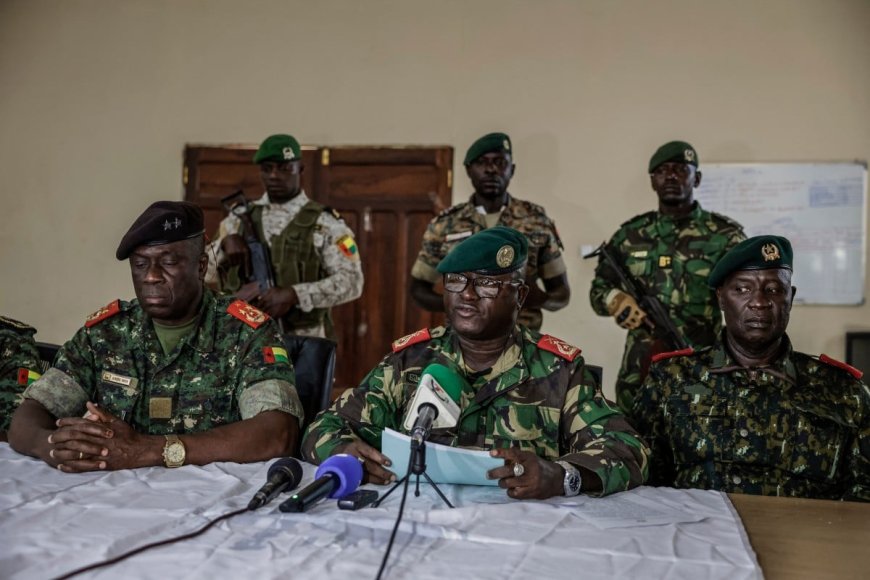Military appoints new leader in Guinea-Bissau after seizing power

Guinea-Bissau’s military on Thursday appointed a general to lead the country for one year, a day after seizing power, arresting the president, and halting the release of election results.
Soldiers patrolled the area around the presidential palace in Bissau on Thursday morning, while a few residents walked along the main road leading to the building, where heavy gunfire had erupted the previous day.
The army chief of staff, General Horta N’Tam, took the oath of office during a ceremony at military headquarters, declaring, “I have just been sworn in to lead the High Command,” AFP journalists observed.
Dozens of heavily armed soldiers were deployed at the event as he told a press conference that the actions taken were necessary “to block operations that aimed to threaten our democracy.”
A group of officers had announced on Wednesday that they had seized “total control” of the coup-prone nation, suspending the electoral process as Guinea-Bissau awaited the results of last Sunday’s vote, which President Umaro Sissoco Embaló had been expected to win.
N’Tam, who has served as the army’s chief of staff, is considered to have been close to Embaló in recent years.
He said evidence had been “sufficient to justify the operation,” adding that “necessary measures are urgent and important and require everyone’s participation.
Sandwiched between Guinea and Senegal, Guinea-Bissau has experienced four coups since independence from Portugal in 1974, along with several attempted coups.
On Wednesday afternoon, General Denis N’Canha, head of the presidential military office, told journalists that the military was assuming control of the country “until further notice” after uncovering a plan involving “drug lords,” which included “the introduction of weapons into the country to alter the constitutional order.”
He said that in addition to halting “the entire electoral process,” military forces had suspended “all media programming” and imposed a mandatory curfew.
All land, air, and sea borders were closed on Wednesday following the coup, but General Lassana Mansali said on Thursday they had been reopened.
Embaló was arrested on Wednesday and was being held at the general staff headquarters, where he was “well treated,” according to a military source.
A senior officer added that “the chief of staff and the minister of the interior” had also been detained.
Opposition leader Domingos Simões Pereira, who was barred from last weekend’s presidential election by the Supreme Court, was also arrested on Wednesday, according to two sources close to him.
The chair of the Economic Community of West African States (ECOWAS) “unequivocally condemns the coup d’état,” the regional bloc said in a statement on Thursday, reiterating its “strict zero-tolerance for unconstitutional changes of government.”
– ‘Deep concern’ –
Guinea-Bissau is among the world’s poorest nations and is a major hub for drug trafficking between Latin America and Europe, a trade enabled by decades of political instability.
Political stability was a central issue in the election, given the nation’s turbulent history. In October, the army said it had thwarted an “attempt to subvert the constitutional order” and arrested several senior military officers.
UN Secretary-General António Guterres was “following the situation with deep concern,” his spokesman said, while former colonial ruler Portugal urged restraint and discouraged “any act of institutional or civic violence.”
Sadibou Marong, director of Reporters Without Borders’ Sub-Saharan Africa office, said the suspension of media operations amounted to a serious violation of the right to information.
“The population must be able to be informed about what is happening in the country, especially in this context of political crisis,” he said.
West Africa has seen a wave of coups in recent years, with Mali, Burkina Faso, Niger, and Guinea all experiencing military takeovers.
AFP

 admin
admin 


